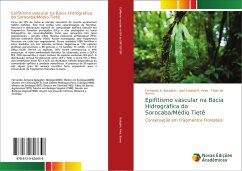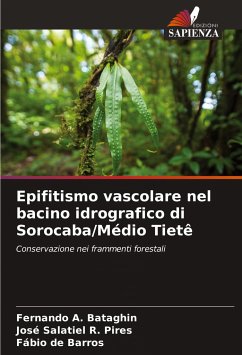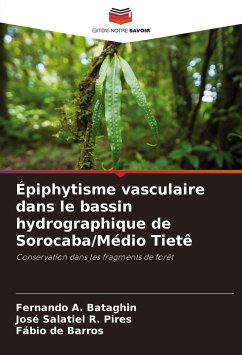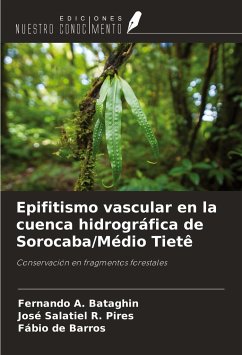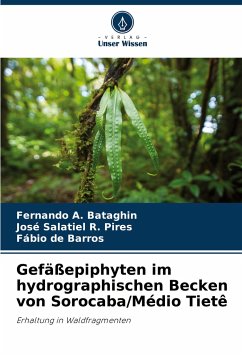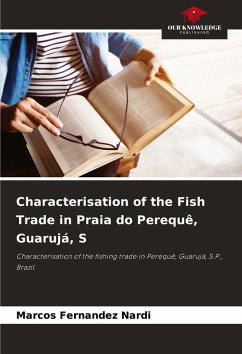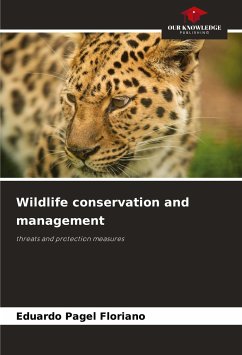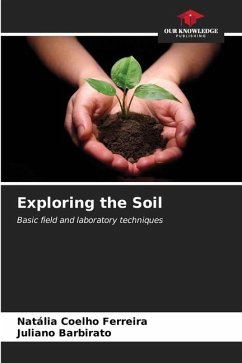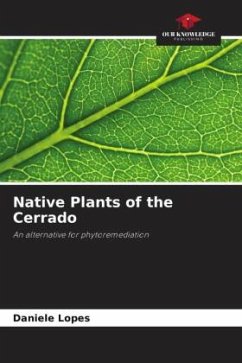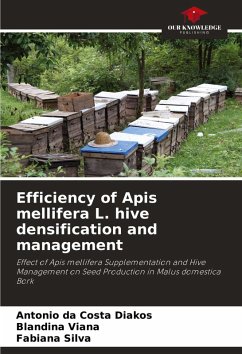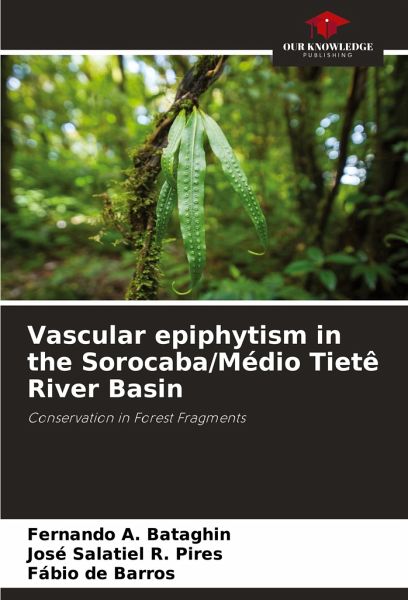
Vascular epiphytism in the Sorocaba/Médio Tietê River Basin
Conservation in Forest Fragments
Versandkostenfrei!
Versandfertig in 6-10 Tagen
46,99 €
inkl. MwSt.

PAYBACK Punkte
23 °P sammeln!
Around 10% of all vascular plants in the world have an epiphytic habit. This book characterizes the floristics, structure and spatial distribution of the vascular epiphytic community in protected and unprotected forest fragments in the Sorocaba/Médio Tietê watershed, which has three vegetation types - cerrado (CER); semideciduous seasonal forest (FES); dense ombrophilous forest (FOD). Seven forest fragments were investigated in each vegetation type. A total of 1080 phorophytes were assessed and divided into six vertical strata. We recorded 176 epiphytic species belonging to 66 genera and 14 ...
Around 10% of all vascular plants in the world have an epiphytic habit. This book characterizes the floristics, structure and spatial distribution of the vascular epiphytic community in protected and unprotected forest fragments in the Sorocaba/Médio Tietê watershed, which has three vegetation types - cerrado (CER); semideciduous seasonal forest (FES); dense ombrophilous forest (FOD). Seven forest fragments were investigated in each vegetation type. A total of 1080 phorophytes were assessed and divided into six vertical strata. We recorded 176 epiphytic species belonging to 66 genera and 14 families; H'=3.695; J=0.713; DMg=18.39. Among the species, 56% were anemochoric and 44% zoochoric. The greatest floristic similarity was observed between CER and FES; FOD had the highest number of exclusive species (94 spp.). The vertical distribution was different between CER and FOD, and between FES and FOD, but similar between FES and CER. The results indicate the dependence of the epiphytic community on atmospheric humidity. The presence of 50 species under some degree of threat constitutes a strong argument for the conservation of forest fragments in the basin.





